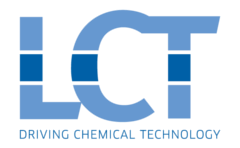MMAtwo: Innovation for recycling of PMMA waste
(30-10-2018)
The MMAtwo project, coordinated by the Dutch company Heathland supported by a 6.6 M€’s funding from the European Union Horizon2020 Research and Innovation programme, started on October 1st 2018 for a 4 years duration. MMAtwo collaborative consortium gathers 13 partners from 6 different countries and develops a new and innovative process to recycle post-Industrial and end-of-life PMMA waste into Second Generation MethylMethAcrylate (MMA) raw material.
Bullet points:
New EU project on post-consumer and post-industrial PMMA wastes, covering the whole value chain; Lead-free technology to enable recycling of lower quality wastes; Expected impacts: at least double PMMA-wastes collection, develop a depolymerization; technology, enable purification for optical and non-optical grades, reduce the energy consumption and CO2 emissions compared to virgin monomer; Consolidation of recycling value chain for the benefit of PMMA.
The MMAtwo project, coordinated by the Dutch company Heathland supported by a 6.6 M€’s funding from the European Union Horizon2020 Research and Innovation programme, started on October 1st 2018 for a 4 years duration. MMAtwo collaborative consortium gathers 13 partners from 6 different countries and develops a new and innovative process to recycle post-Industrial and end-of-life PMMA waste into Second Generation MethylMethAcrylate (MMA) raw material. PolyMethyl MethAcrylate (PMMA) is a well-established polymer known for its optical properties. About 300 000 tons of PMMA are produced in Europe every year, or close to 1 billion Euro of market value. Although PMMA can be turned back into its monomer by thermal depolymerization, thus saving precious resources and CO2 emissions, it is estimated that currently only 30 000 tons of waste is recycled annually in Europe, or only around 10% of the yearly production. For a large part, recycling of PMMA is currently reliant on a lead-based process which does not allow to reprocess the lower PMMA qualities. MMAtwo’s innovative concept for PMMA waste recycling through depolymerization will focus on handling both post-industrial and contaminated end-of-life PMMA waste, thereby converting difficult to recycle waste that would otherwise be landfilled or incinerated into high quality secondary raw material.
The MMAtwo consortium consists of partners representing every step of the PMMA value chain: Heathland (Project Coordinator), a Dutch collector and recycler of PMMA waste; Comet Traitements, a Belgian recycler of end-of-life vehicles; Ecologic, a French association to facilitate recycling of WEEE’s; Arkema (Executive Board and Advisory Board chair), a French PMMA producer; Delta Glass (part of Polyplastic Group), a Dutch producer of PMMA windows; JSW Europe, a German based division of Japan Steel Works and core technology provider; Speichim (part of Séché-Environnement group, French leader of waste treatment ), a French based specialist in purification of solvents and chemicals; AKG-Gazbeton, a Turkish company developing insulation products; Ghent University, a Belgian academic partner to train researchers on polymer recycling; Quantis, a Swiss based specialist in Life Cycle Analysis; Process Design Center, a Dutch SME for process development, integration and optimization; Certech, a Belgian applied research center in chemistry, specialised in emissions and odours of materials and polymer recycling standards; and Ayming a French consulting group supporting the project management, communication and dissemination activities.
MMAtwo’s Advisory Board includes several academics, CEFIC’s Methacrylate sector group and other PMMA producers’ representatives, illustrating the commitment of the PMMA value chain.
Acknowledgement
This project has received funding from the European Union’s Horizon 2020 research and innovation programme under grant agreement No 820687.
